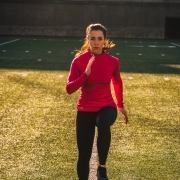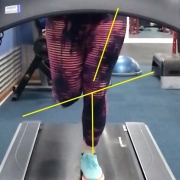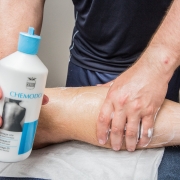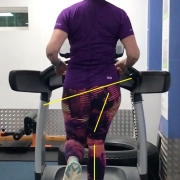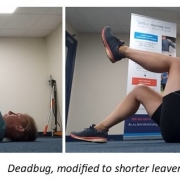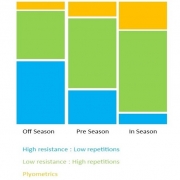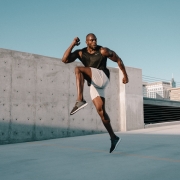Why should you get a run analysis? Episode 2… Hip level & rotation
/in Articles, Physiotherapy Advice, Running, Training, Triathlon training/by Pete TangHilly v flat run race. Should your strength training change?
/in Articles, Running, Strength, Training/by Pete TangBlog – Jenny’s knee injury (8)
/in Rehabilitation, Running, Strength, Training, Triathlon training, Uncategorised/by Pete TangSports Massage – Learn about the many benefits
/in Articles, Running, Training, Wellness/by Pete TangBlog – Jenny’s knee injury (7)
/in News, Physiotherapy Advice, Rehabilitation, Running, Strength, Training, Triathlon training/by Pete TangBlog – Jenny’s knee injury (6)
/in Physiotherapy Advice, Running, Training, Triathlon training, Uncategorised/by Pete TangBlog – Jenny’s knee injury (4)
/in Physiotherapy Advice, Running, Training, Triathlon training/by Pete TangHow should strength and plyometric training vary throughout your run season and training?
/in Articles, Running, Training, Triathlon training/by Pete TangWhat are plyometrics & why should you include them in your run training?
/in Articles, Running, Training, Triathlon training/by Pete TangWhat are plyometrics?
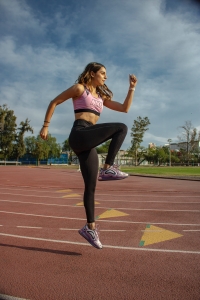
Plyometrics are a form of training that often require fast lengthening of a muscle before a contraction to perform a movement. They often involve jumping, bounding and hopping in various different activities. Hopscotch is the perfect example of this form of exercise used during our early years. This form of exercise is regularly performed in an elite sport setting to help to reduce injury but also improve performance.
How do plyometrics work?
When performing plyometric movements, muscles will go through a stretch as well as an accelerated shortening contraction. During the lengthening / stretching phase, energy is stored within the muscle and the connective tissues, then as the muscle goes into a shortening contraction, the energy previously stored is recovered to contribute to the explosive movement. This is likened to the stretching of a spring before a release back to its natural position. The more we use this style of training, the better we become at storing that energy and our ability to release energy quickly to perform a movement.
Why should runners use plyometrics in their training?
The benefits are clear for basketball players and long and triple jump athletes as to increase their ability to jump vertically or for distance. But why should it have a place in your run training routine?
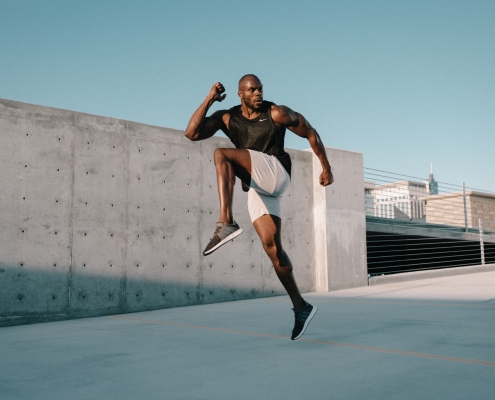 A large focus of plyometric training is being able to produce the most possible force with the least amount of ground contact time, whilst not losing all the energy you’ve created into the ground. Sound familiar? This is exactly what we go through with running. It’s all about becoming efficient with each contact we make with the floor and taking that efficiency in to the next stride. So, whether you’re struggling for speed with your runs or find yourself having heavy contacts into the floor, plyometrics could take your running to the next level.
A large focus of plyometric training is being able to produce the most possible force with the least amount of ground contact time, whilst not losing all the energy you’ve created into the ground. Sound familiar? This is exactly what we go through with running. It’s all about becoming efficient with each contact we make with the floor and taking that efficiency in to the next stride. So, whether you’re struggling for speed with your runs or find yourself having heavy contacts into the floor, plyometrics could take your running to the next level.
Where to start?
There are no official requirements to start plyometric training, however those who have experience in running and have also participated in some form of strength training will be at a good level to start adding plyometrics to their routine.
If you’re interested in learning more about how to apply plyometric training to your run training safely and effectively, contact the clinic on 01454 540066 to book a gym session with Dan.
Get in Contact
We understand that people often don't know what we do or how we can help. Don't worry we're here to help.
To ask us a question or to book an initial appointment simply call 01454 54 00 66 for our Bristol Clinic or 01291 76 99 66 for our Chepstow Clinic and one of our friendly team will assist you with your enquiry.
Alternatively, please fill in the form on the Contact page.
Search the Website
Testimonials
"This was the first time visiting a sports massage, needed due to an injury to my calf. After just 1 session the improvements made have been incredible, and I am already booking more sessions in immediately. Matt Williams, who looked after me, was very friendly and extremely Knowledgeable..."
- Matt Lansdown

